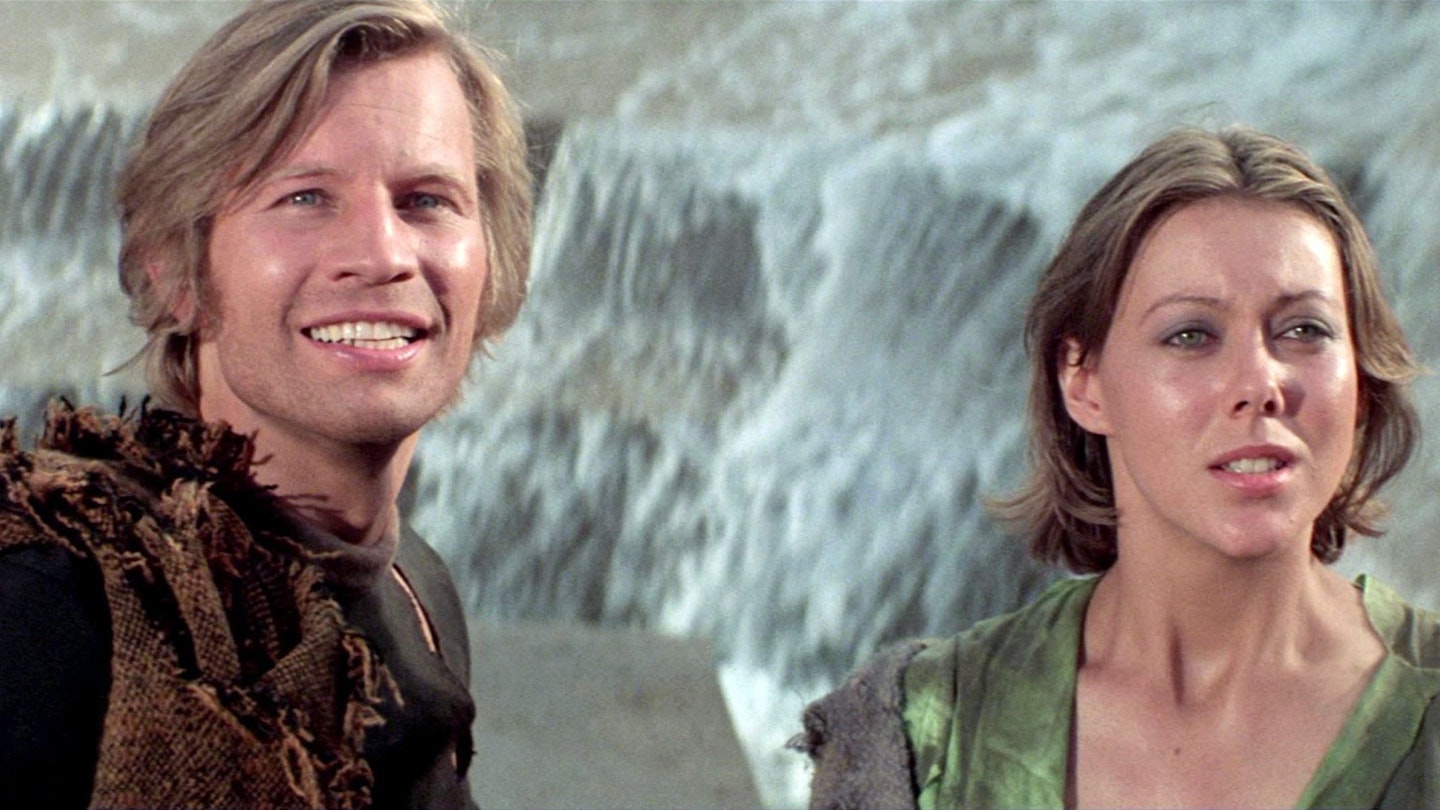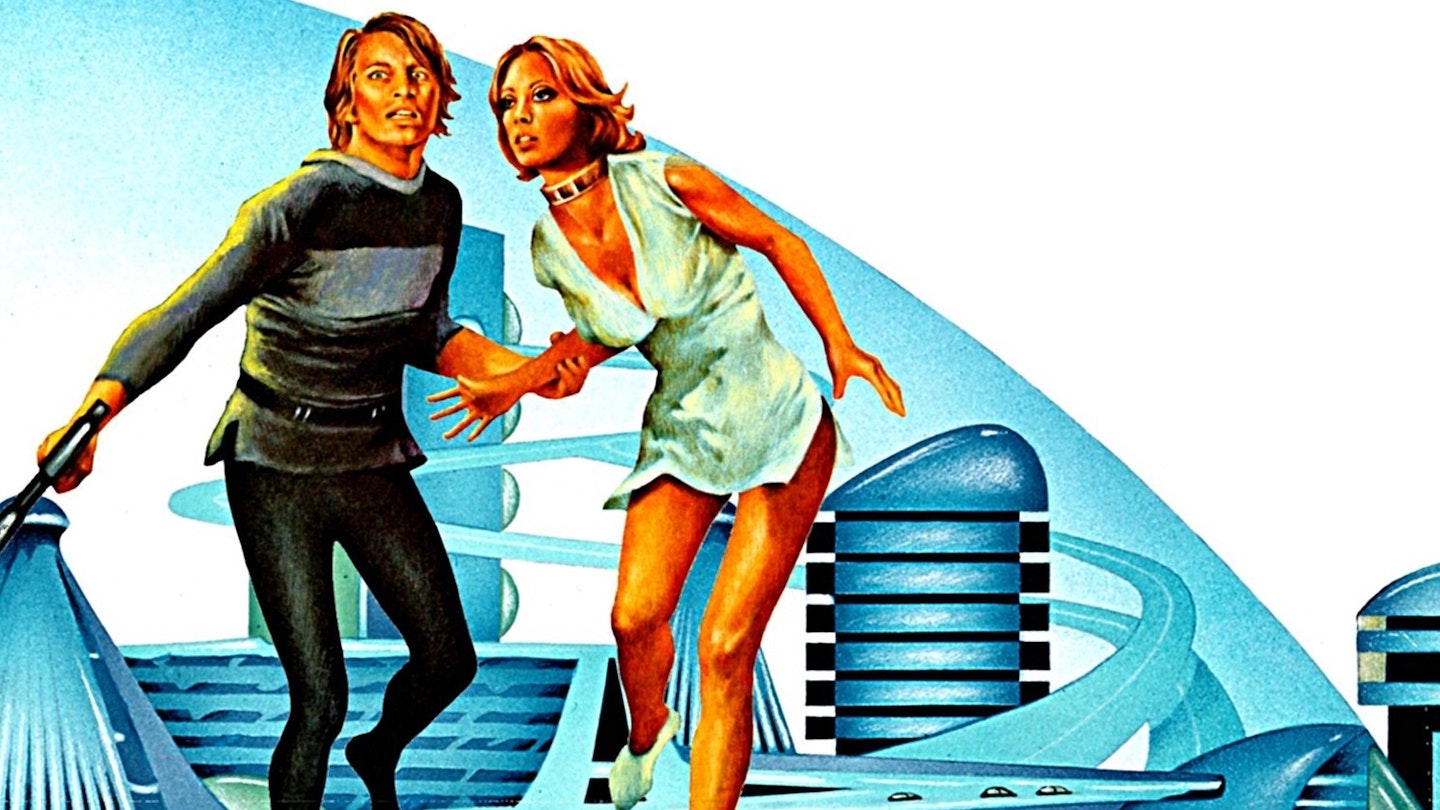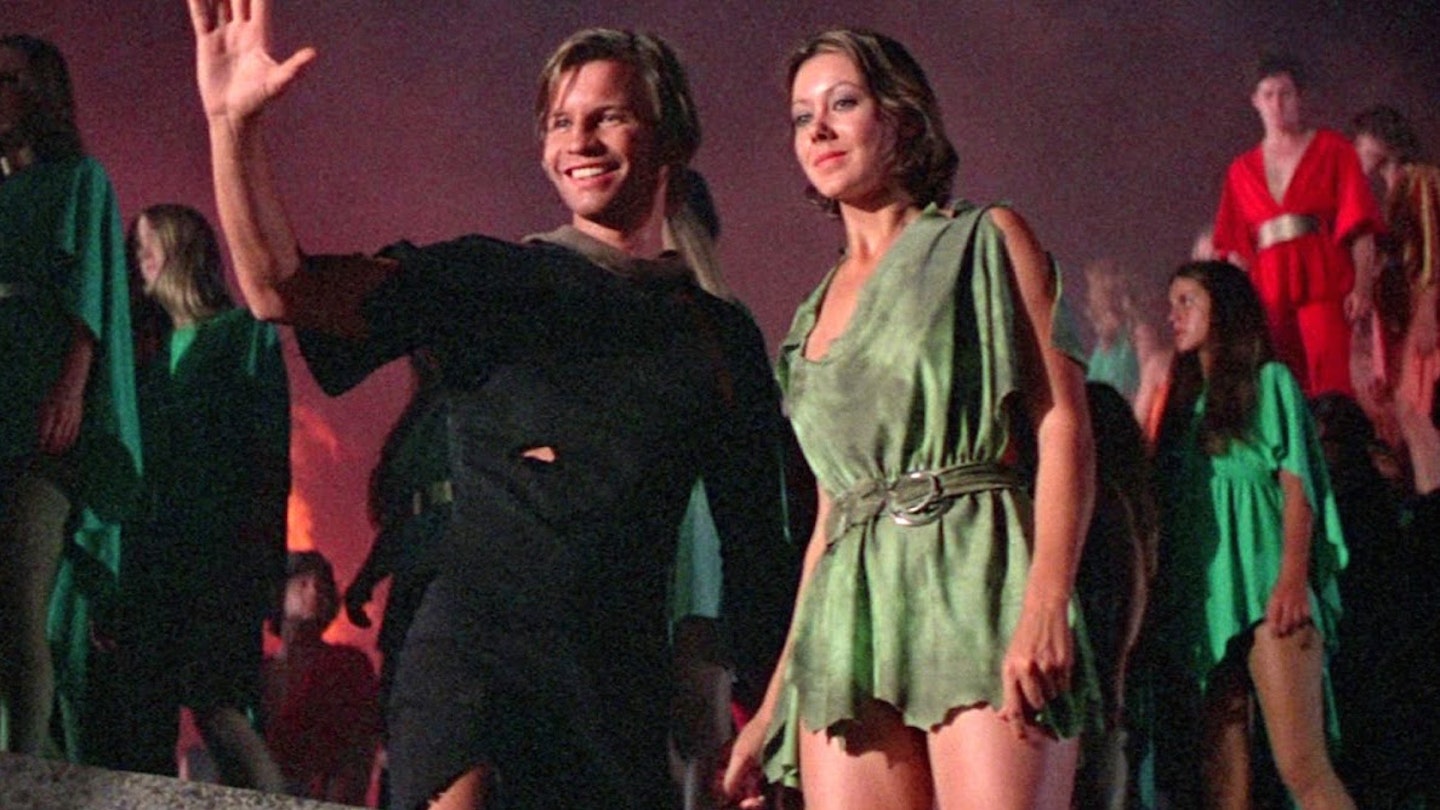Despite being set in a far-flung future, Michael Anderson’s chirpy and appealing science fiction thriller can’t escape its ‘70s origins. There is something in the future gazing of that era, all the glittery, monochrome sets and jumpsuits that defines contemporary obsessions rather than notions of future possibility. Hence, time has done it no favours, the details of its computer run society quaint and silly in the aftermath of the internet. Yet, it still has spirit and energy, a compelling central idea and Jenny Agutter in a miniskirt. So, what if the effects are clunky, this is memorable enough hokum.
After all, it’s a long time since you would deem Michael York and the fragile-sexy Agutter as likable leading actors. The idea of enforced suicide is cleverly draped in a pseudo-religion — a process of renewal marked by the crystals set in the palm of the hand — with some chilling overtones of the whacky religions currently on the go. And the gradual conversion of York’s heroic Logan from smug believer to rebel, care of Agutter’s stoic Jessica 6, certainly feels plausible. Once they’re on the run, seeking out the fabled Sanctuary (which Logan has secretly been instructed to destroy), the film builds up a fair head of steam, plunging them through a series of dangerous encounters before they hit the great outdoors and confront old-man Ustinov as proof of a greater lifespan and the possibilities of family.
It’s a dystopian fantasy, trilling with warnings about decadence, ageism, and allowing technology and science to run riot, done to a disco groove. Anderson fails to imbue it with darkness, real political thought, in his race to be zippy and sexy. The ideas are there, but they play second fiddle to York’s well-to-do heroism and Agutter’s lovely thighs.








